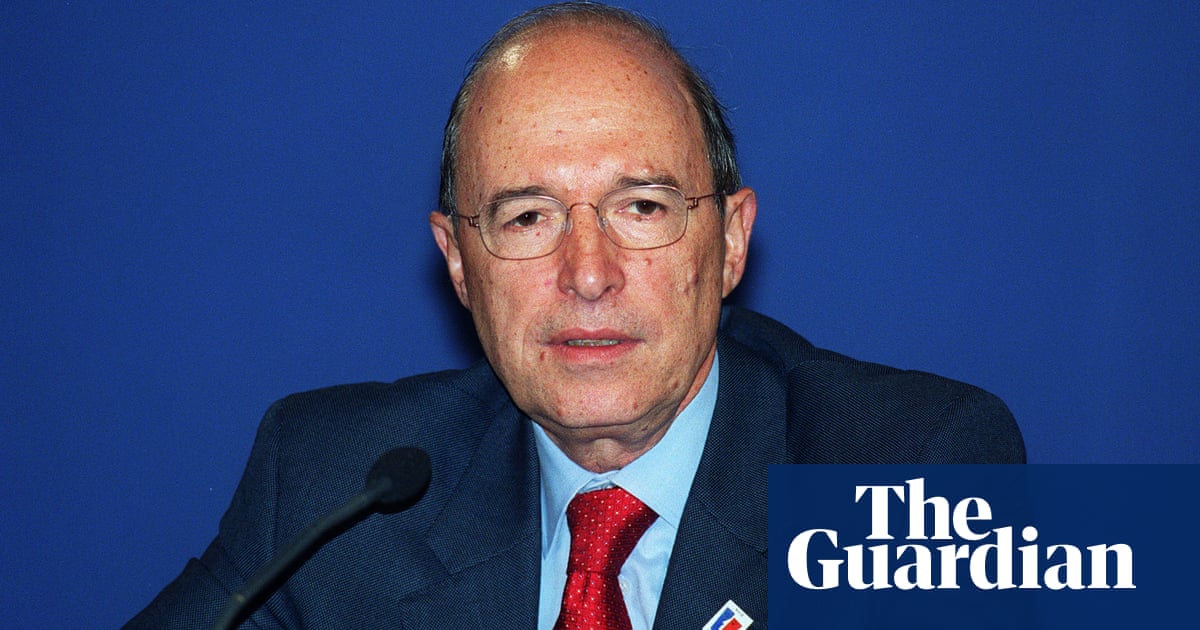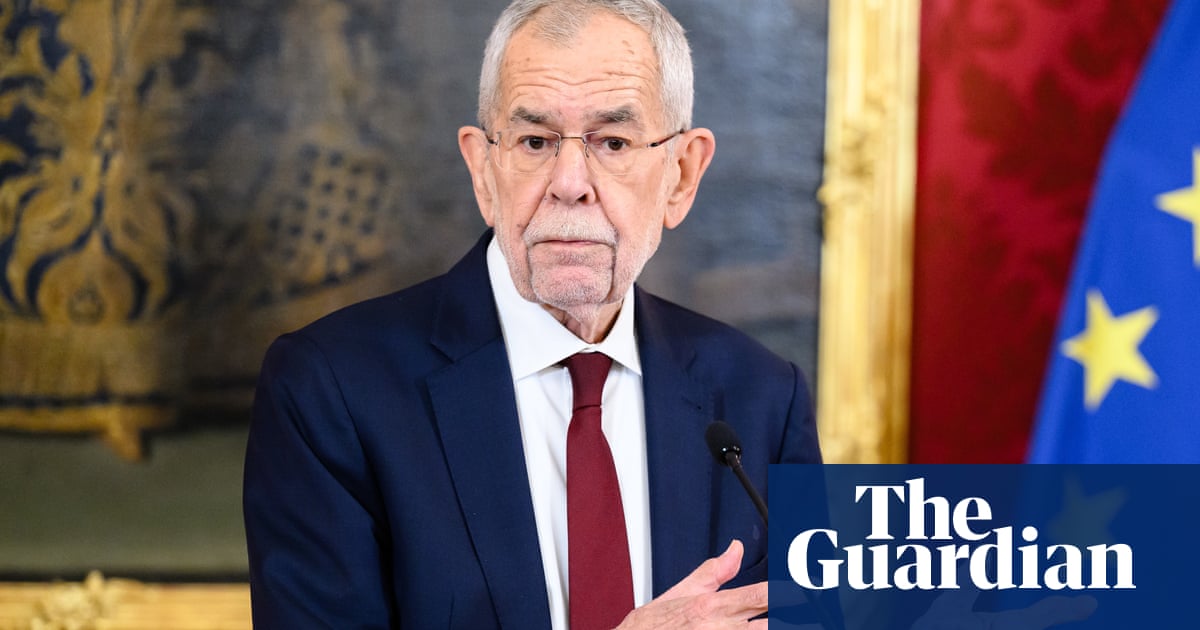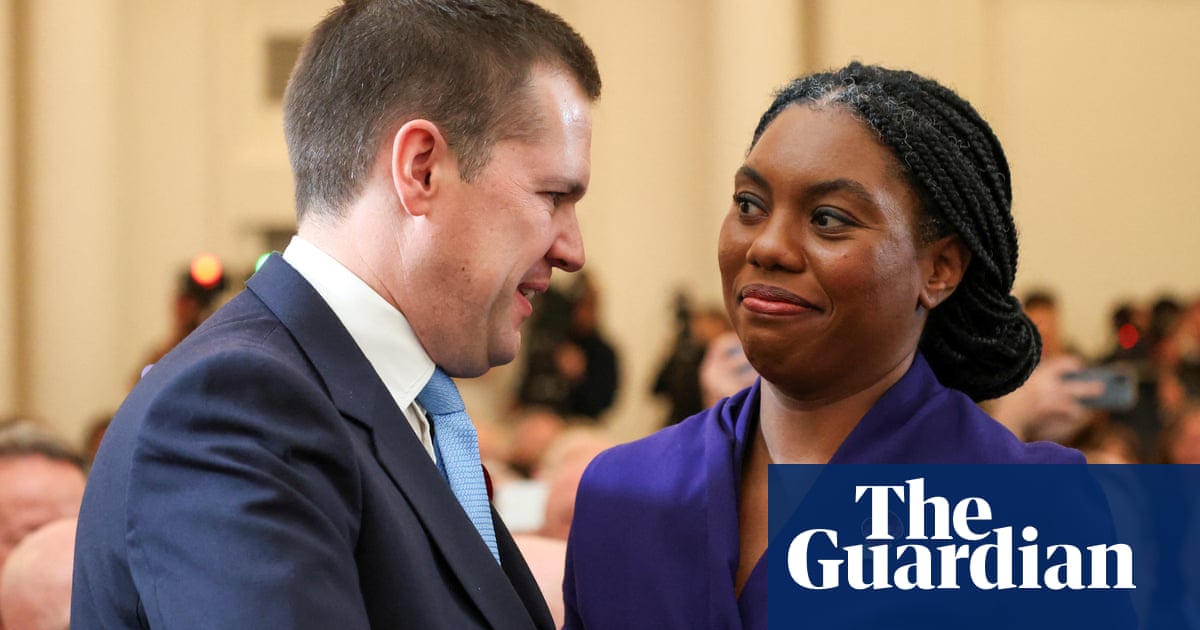‘America is ready for a new chapter,” Barack Obama declared to the Democratic National Convention in August, “America is ready for a better story.” Many would agree, but as commentators try to explain the bewildering reversals and bizarre dynamics of this long and unprecedented election campaign they have often instead reached for stories that are old and familiar.
Shakespeare has been a popular reference point: Joe Biden has frequently been compared to King Lear in his reluctance to relinquish power, Donald Trump to everyone from Richard III to Macbeth. Yet a rather different form of drama, ostensibly less realistic and less obviously relevant to contemporary politics, may in fact offer analogies that are more illuminating still.
Richard Wagner’s Ring of the Nibelung was first performed in its entirety in the Bavarian town of Bayreuth almost 150 years ago. As the cycle of dramas begins, the dwarf Alberich, the Nibelung from whom it takes its name, gropes the beautiful Rhinemaidens and lasciviously compares their charms. They carelessly reveal that their river contains gold that could make its owner master of the world, but only if he renounces love. Alberich accepts this condition and steals the gold, an act of despoliation whose consequences ripple out through the work’s four evenings. With his brother Mime as his apprentice, he makes a ring and a magic helmet that bring him supreme authority. Similarities with Donald Trump, his beauty contests and gameshows, his misogyny, his exhortations to “drill, baby, drill” and his amoral lust for power, are not hard to find.

Like Trump, Alberich holds on to power for much less time than he hopes. His enemies exploit his vanity to trick him out of the ring, effecting a transition whose legitimacy he will never accept. Alberich exhorts his followers to revolt, but without success, and regaining the ring is an obsession that endures for the rest of the story. In the final drama, Twilight of the Gods (Götterdämmerung), Alberich enlists the help of Hagen, the son he has fathered in a loveless union with a mortal woman. Trump, too, relies on younger family members to prosecute his interests: Ivanka and her husband Jared Kushner were crucial figures in his presidency, Eric and his wife Lara have recently risen to prominence, Donald Jr is a constant presence.
Trump’s latest surrogate is his vice-presidential candidate, JD Vance, reputedly selected at Donald Jr’s behest. Like Hagen, Vance is a vociferous advocate of marriage: in Twilight of the Gods, Hagen seeks matches for his half-siblings Gunther and Gutrune, supposedly for their benefit but in fact as part of an elaborate strategy to trick Siegfried into giving up the ring. Both Vance and Hagen offer plausibility, engaging in social interactions and vice-presidential debates with a superficial courtesy of which Trump and Alberich are incapable.
But both are less interested in serving their promoters than in securing for themselves the ultimate prize, whether that is the ring or the 2028 Republican nomination.

The parallels between Biden and Wotan – the character who seizes the ring from Alberich – are equally striking. Like the 46th president, the king of the gods has accomplished much during his long career as a legislator, notably building the magnificent fortress of Valhalla.
But he is tormented by his waning abilities, and the reluctant realisation that the task he wants to accomplish himself – the recovery of the ring from the dragon, Fafner – can only be achieved by a younger proxy: stronger, fearless and less tarnished by a lifetime of compromise. Ultimately, it is a female authority figure, older even than himself, who persuades him to abandon his ambitions. Few people know what Nancy Pelosi said to Biden in July, but the agonised confrontation between Wotan and Erda in Act III of Siegfried gives some idea of the likely emotions involved.
Wotan’s daughter, the Valkyrie Brünnhilde, ends The Ring with an impassioned soliloquy. It is now impossible to predict whether Kamala Harris can emulate Brünnhilde by having the last word in this year’s election drama – but millions across the world cling to the hope that she will. Through most of Twilight of the Gods, Brünnhilde is exploited and humiliated by Siegfried, the hero she thought was her husband, and Hagen, the villain who uses her for his own ends. But in the drama’s final minutes, she emerges from her torment to convey a commanding message of love, laughter and joy. Harris’s willingness to embody these same values, conspicuously absent from recent political discourse, fuelled her swift transformation from patronised vice-president to plausible candidate. Journalists covering her campaign frequently comment on her personal warmth; her equally exuberant running-mate, Tim Walz, observes that “she brings the joy”.

Rachel Nicholls as Brünnhilde in The Valkyrie directed by Richard Jones for English National Opera in 2021. Photograph: Tristram Kenton/The Guardian
Of course, as many have noted, joy is not a political programme, and despite Harris’s success in changing the campaign’s character, she has struggled to define what she would do differently from the unpopular administration she has served. Late in the day though it came, Harris’s incursion into the hostile territory of Fox News, where she insisted that her presidency would not be a continuation of Biden’s, was a notable effort to do just that. The interview’s equivalent in The Ring is Brünnhilde’s searing encounter with Waltraute in act I of Twilight of the Gods, when she resists her sister’s pleas to halt their father’s decline by returning the ring to the Rhine. By doing so, she condemns Wotan to irrelevance, but also articulates what is most important to her, establishing the moral authority that allows her to command the cycle’s ending as she does.
Needless to say, the parallels between Wagner’s story and that of the election only stretch so far. Incest and immolation, key motifs in The Ring, have not surfaced as themes even in the most surreal of Trump’s ramblings – though with a week to go, anything remains possible. Nor are there many swords and spears, dragons or talking birds in today’s American politics. Intrepid heroes, too, are notably absent, though perhaps there have been enough would-be Siegfrieds among Biden’s 45 predecessors. But if we take The Ring less literally, it offers extraordinary insights into how power passes from one generation to another, into the consequences of denuding the Earth of its resources, and into the transformative potential of love.
Wagner has often been appropriated by the political right, notoriously during the Third Reich, and there is plenty in his writing to encourage fascists and authoritarians, not least the disgustingly antisemitic tracts that disfigure his posthumous reputation. But at the time he conceived The Ring, Wagner was a leftwing revolutionary, working to overthrow the regime in Saxony that employed him as Kapellmeister. As his idealism curdled into resignation, he experimented with different endings, giving Brünnhilde words that echoed the philosophy of renunciation of his new intellectual hero, Arthur Schopenhauer. He ultimately decided not to set these words, giving the final say instead to music, and to an ecstatic melody that he told his wife Cosima represented the “glorification of Brünnhilde”.

The Ring is many things: a practical realisation of a revolutionary theory of musical theatre; a compendium of brilliant orchestral sounds; a monumental physical and psychological challenge for singers; for some, a philosophical meditation or political tract. But it is also, perhaps above all, a supreme piece of storytelling, one that only truly exists when played out in a theatre. This need for perpetual recreation makes The Ring inescapably not just a story of its own time but of ours too, one that absorbs and reflects its audience’s preoccupations. And by allowing music to take flight in his drama’s final moments, Wagner invites his listeners to fill the imaginative space he has opened up, connecting his concerns with our own.
Like The Ring, this election campaign still permits many possible endings, and like Wagner, the American electorate is leaving it uncomfortably late in the process to clarify which will prevail. The ultimate fate of Alberich is left ambiguous: almost uniquely among The Ring’s major characters, he is neither shown nor described as dying, though his world-view is discredited and his scheming thwarted, and he plays no part in the cycle’s final act. Perhaps the one certainty about this election is that whether defeated or victorious, Trump will not remain similarly silent. But whatever the outcome, old stories like Wagner’s can help us understand the newest chapters in our own.

.png) 2 months ago
27
2 months ago
27













































